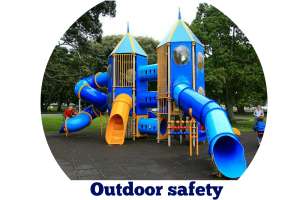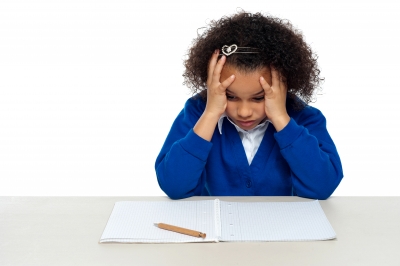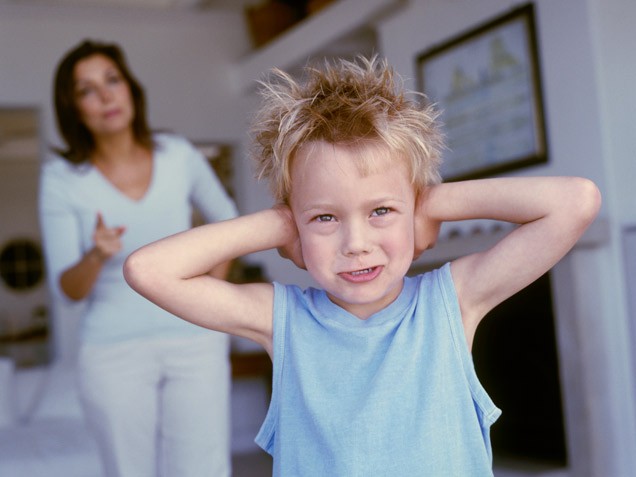 During my residency days I was under the impression that the head of my department was a tyrant (I now believe that residents are supposed to feel that way) but as the years go by there are so many instances when I remember him with gratitude. My carelessness at certain tasks would not escape his observant gaze….from misspelling I’s and e’s in prescriptions to answers I gave from hearsay without actually reading my textbook. One busy day in the OPD he told me that I had prescribed multivitamins to twelve children and asked me for the reason.” Nothing major sir,” I said spiritlessly (by then I had learnt that honesty was my only defence) “their mothers were not happy with their appetite and nothing was really wrong with the children…”. “Dr Krishna,” he said sincerely, “you should know that you are accountable for everything you do…how many prescriptions would you actually have written if the parents concerned could not afford to buy the medicine?” I think the answer was two. Since then I have always thought twice before prescribing anything.
During my residency days I was under the impression that the head of my department was a tyrant (I now believe that residents are supposed to feel that way) but as the years go by there are so many instances when I remember him with gratitude. My carelessness at certain tasks would not escape his observant gaze….from misspelling I’s and e’s in prescriptions to answers I gave from hearsay without actually reading my textbook. One busy day in the OPD he told me that I had prescribed multivitamins to twelve children and asked me for the reason.” Nothing major sir,” I said spiritlessly (by then I had learnt that honesty was my only defence) “their mothers were not happy with their appetite and nothing was really wrong with the children…”. “Dr Krishna,” he said sincerely, “you should know that you are accountable for everything you do…how many prescriptions would you actually have written if the parents concerned could not afford to buy the medicine?” I think the answer was two. Since then I have always thought twice before prescribing anything.
Vitamins are undoubtedly essential for synchronised body functioning (for enzymes to digest food, for blood to clot, for the strengthening of bones and cartilage, for nerves to transmit impulses, for hormones to be secreted, for wounds to heal, for immunity and for the eyes to see) and not just for growth. Since they cannot be manufactured in sufficient amounts by the body, and must be taken in from the environment. With the exception of vitamin D, which is manufactured by the body in response to sunlight exposure (wherein research says that 15 minutes a week of such exposure is all that is needed), all the others are naturally supplemented by a balanced diet. Vitamins occurring in their natural forms are the easiest for the body to use, and accompanied by important related compounds enabling their absorption and assimilation by the body. So are we over prescribing and overrating commercial nutritional supplements? Well, the answer is a tricky one.
Also Read: Do Teen Daughters Need Supplements?
Let me first list out the conditions when vitamin supplementation is mandatory.
Vitamins A, D, E, and K are called fat-soluble vitamins and are stored in the fatty tissues of the body and in the liver. They wait around in your body and when it’s time for them to be used, special carrier proteins take them to where they’re needed. So overloading on them can have toxic effects on the body. Water-soluble vitamins (vitamin C and the B complex as they are usually called) don’t get stored as much and travel through the bloodstream. Whatever is in excess is flushed out by the kidneys. So a child with a liver disease, a kidney disorder or a malabsorption syndrome (a condition where dietary nutrients do not enter the bloodstream) will need vitamins in doses above the RDA (Recommended Dietary Allowance, or the amount needed every day) for prolonged periods.
Babies get most of their nutrition a few weeks before birth and therefore those born preterm have insufficient reserves and they require vitamins and minerals to be supplemented.
Sometimes a long course of medication like medicines given for fits, prolonged fevers like typhoid, heart problems etc. require vitamin supplements in order to break down the drug and replace the reserves that get exhausted.
Breastfed babies require no vitamin supplements unless the mother is deficient. We prescribe vitamins usually after solids are introduced and formula is discontinued. Many paediatricians make an exception to this and suggest Vitamin D supplements throughout the first year. This is because research shows a prevalence of vitamin D deficiency of 50-90 % in our country (attributed to low dietary calcium, skin colour and limited outdoor activity).It is also because vitamin D is now quoted as a preventative miracle vitamin for everything from cancer and diabetes to heart disease and multiple sclerosis.
Also Read: Should we Worry about Vitamin D?
I believe that several aspects of our lifestyle do not contribute to good nutrition. The tiny portions of fruit and veggies our children cut a deal to eat are not totally fresh and hygienic. Busy schedules have made processed snacks and energy drinks obligatory. Carbonated drinks leach vitamins and minerals from the body. A diet that includes milk and dairy products like cheese and yogurt, plenty of fresh fruits and leafy, green vegetables, protein like chicken, fish, meat, and eggs and whole grains oats and brown rice rules out vitamin deficiency (except for vitamin D).
For children who aren’t eating regular, well-balanced meals ( eating a lot of fast foods, convenience foods, and processed foods),finicky eaters, and those who play physically demanding sports, giving vitamins is akin to providing a safety blanket to avoid guilt. Vitamins cannot increase appetite if you are not deficient in them. Please look to activity levels, and emotional and hormonal imbalances when you notice a lack of appetite instead of self-prescribing your child vitamins.
Kids on a strict vegetarian diet need an iron supplement and those on dairy-free diet may need a calcium supplement and not just vitamins.
So coming back to the question, I will say that healthy kids do need vitamin supplements. Not always, but sometimes and for some time.
Re-published with permission from the blog of ParentEdge, a bi-monthly parenting magazine that aims to expose parents to global trends in learning and partner with them in the intellectual enrichment of their children. This blog has been written by Dr. Krishna Mahathi, she holds diplomas in Pediatrics and in the management of allergies and asthma. Years of working and interacting with children and parents have given her insight into developmental disabilities. She wishes that there was more awareness and acceptance of the issues that differently-abled children face and hopes that through this blog, she can enable thse children and their families to make sensible and informed choices.





